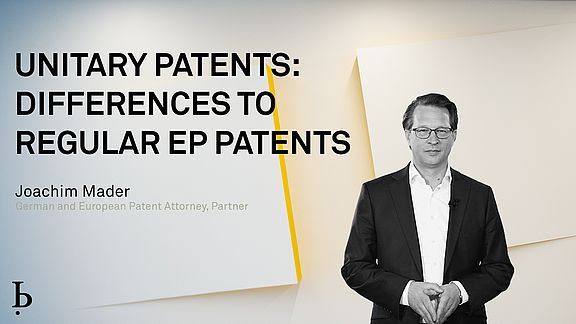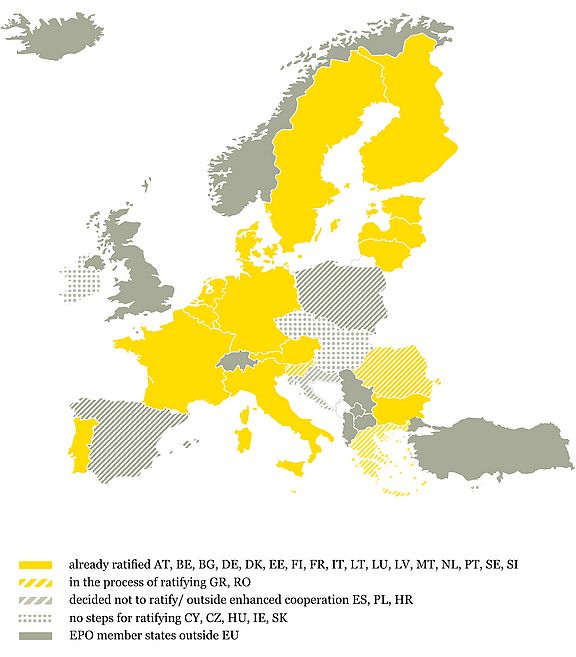Unitary Patents – Differences to regular EP patents
The unitary patent is a new option after a grant of a regular EP patent.
The grant procedure for the unitary patent remains the same: Applicants file a European patent application with the EPO. After grant, there is the option of converting the granted bundle patent into a unitary patent for the current 17 member states of the UPC by filing a corresponding request for unitary effect.
Such a unitary patent will have a uniform effect in all participating member states. That means it can be enforced in all participating states in single enforcement proceedings. As a downside for the proprietor, it can be invalidated in all participating states in a single revocation proceeding.
With the unitary patent it is no longer necessary to validate the patent individually in each country for which protection is sought, but protection can be achieved in all participating states with a single request with the EPO. There will be multiple “generations” of unitary patents as in the beginning only the current 17 member states are included. If more member states ratify the agreement the unitary effect will encompass those territories too. However, this will not affect unitary patents that are already granted.
Another benefit of the new system is, that instead of paying renewal fees to the various national patent offices as you would for a regular EP patent, only a single renewal fee needs to be paid each year, conveniently with a single patent office, the EPO.
For more information about the Unified Patent Court and the Unitary Patent, please visit our dedicated UPC page.
TIP: Watch Joachim Mader's IP Quick Tip on our YouTube channel




